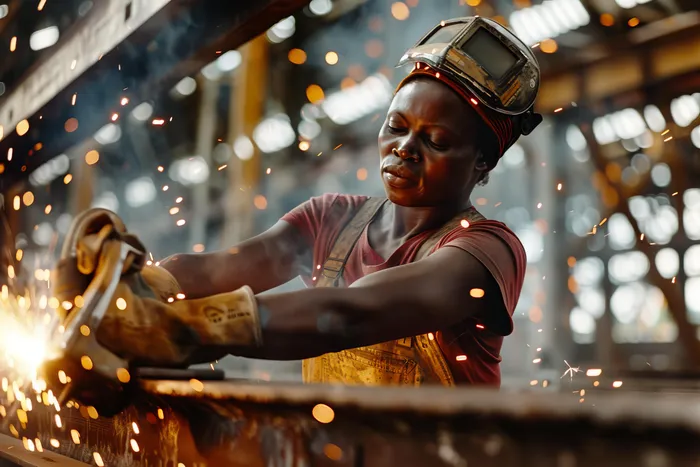
African Mining Week 2025 will spotlight gender inclusivity and the role of women in driving Africa’s mining transformation
Image: Freepik
As the landscape of Africa’s mining sector undergoes a profound transformation, women are emerging as crucial decision-makers, driving change and innovation across the continent.
African Mining Week (AMW) 2025, set to take place from October 1–3 in Cape Town, will proudly feature a dedicated Women in Leadership Forum, a pivotal gathering aimed at connecting female leaders across the mining value chain with global investors and strategic partners.
The forum promises to be a vibrant space for dialogue and collaboration, showcasing the vital role women play in fostering policy reforms, attracting investment, and leading significant enterprises in the mining industry.
Among the notable leaders making strides in this arena is Bogolo Kenewendo, Botswana’s Minister of Mining. Under her leadership, Botswana is experiencing a surge in structural reforms designed to strengthen investor partnerships, particularly in the diamond sector.
In a landmark move, Botswana recently signed a groundbreaking diamond sales agreement with De Beers that will see the nation’s stake in the Debswana joint venture increase from 25% to 50% over the next decade.
This deal not only underlines Botswana’s commitment to enhancing its diamond value chain but also underscores the critical contribution of diamonds to the nation’s economy, where the sector accounts for a staggering 80% of exports and 25% of gross domestic product (GDP).
In Uganda, a similar wave of change is being driven by Minister of Energy and Mineral Development, Ruth Nankabirwa. She is actively forging strategic partnerships to revitalise the nation’s mineral sector.
March 2025 marked a historic moment as Uganda signed its first-ever Mineral Production Sharing Agreement aimed at revamping the Kilembe copper mines with Sarrai Group Limited and Nile Fibreboard Limited. Moreover, Uganda is poised to embark on its first commercial rare earth production at the Makuutu Project, a venture developed in association with Ionic Rare Earths, with operations anticipated to commence in 2026.
Meanwhile, in Malawi, Minister of Mining, Monica Chang’anamuno, is championing diversification efforts in the country’s mineral portfolio while simultaneously enhancing governance within the sector. According to estimates by the World Bank, Malawi stands to benefit significantly, with potential mineral revenues projected to reach $30 billion between 2026 and 2040, driven by developing uranium, graphite, and rare earth projects. In line with this progression, Lotus Resources is targeting initial uranium production at the Kayelekera Mine in Q3 2025, and the country recently established its inaugural Mining Regulatory Authority to streamline approvals and accelerate project development.
The growing influence of women extends beyond public office and into the private sector, where female executives are driving the energy industry’s evolution. Kelly Ayuk Mealia, Chairperson and Co-founder of Energy Capital & Power, is a leading advocate for investment and project development across the continent.
Marie-Chantal Kaninda, President of Glencore DRC, is instrumental in maintaining the Democratic Republic of Congo’s status as a global leader in cobalt and copper production. Furthermore, Nolitha Fakude, Chairperson of Anglo American South Africa, has become a prominent voice advocating for environmental, social, and governance (ESG) practices and diversity within the sector. Nombasa Tsengwa, CEO of Exxaro Resources, is at the helm of one of South Africa’s foremost coal producers, pushing for sustainable practices.
Additional notable women in leadership include Elizabeth Rogo, CEO of Tsavo Oilfield Services (Kenya), Naomi Biney, CEO of Goldridge Ghana Limited (Ghana), and Nneka Ezeigwe, CEO of Eta Zuma Mining and Industries (Nigeria), all contributing to the reshaping of the mining landscape across Africa.
FAST COMPANY
Related Topics:
